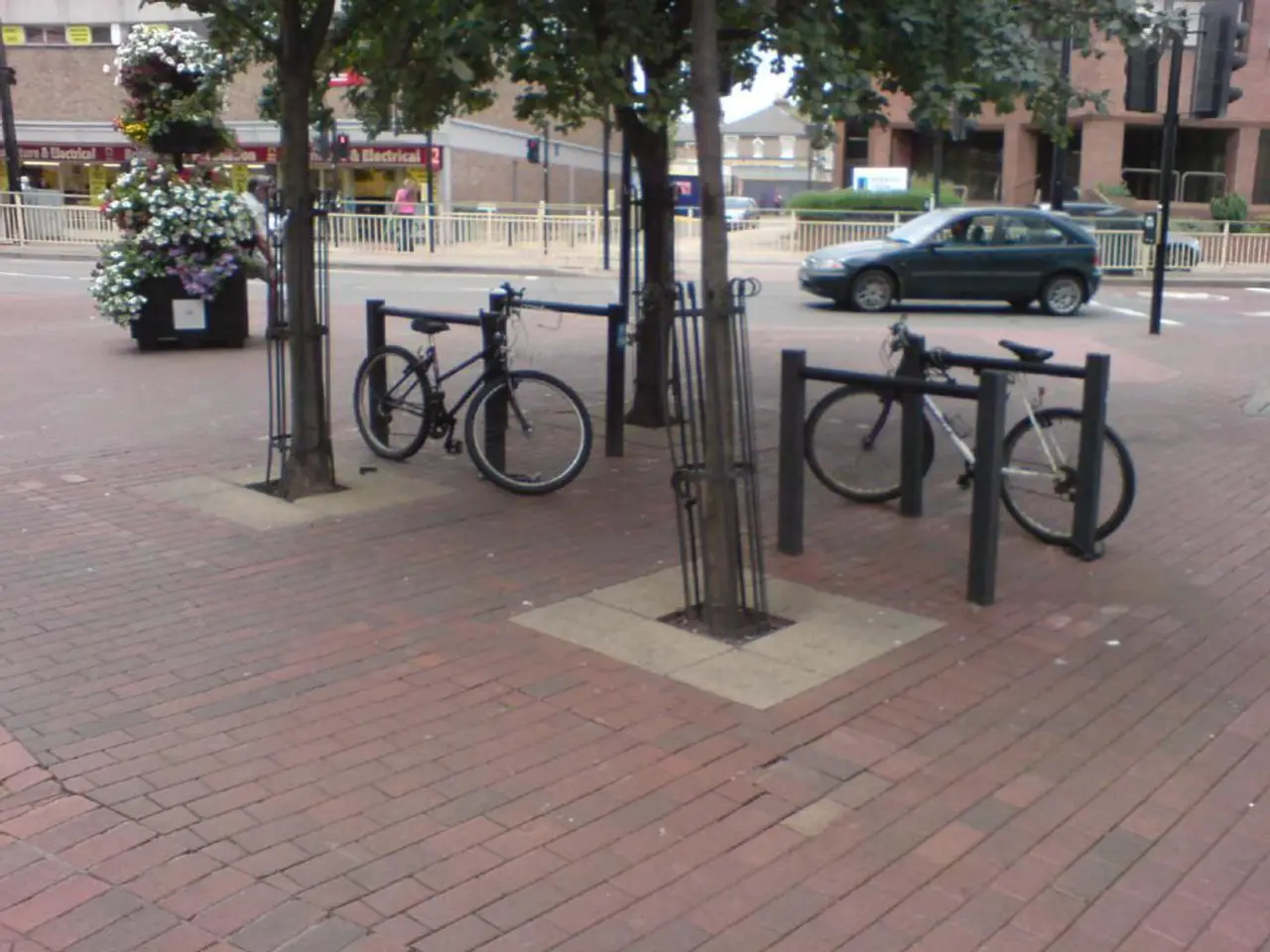Berlin authorities postpone proposals for extensive bicycle freeways
Berlin's bicycle superhighways, or Rad-Schnellwege, are an ongoing urban mobility project aimed at providing fast, safe, and direct cycling routes to encourage sustainable transport. However, the project faces notable budgetary constraints and political debate about its future development.
Budgetary concerns are significant. The city council has expressed caution about expanding the bicycle superhighway network due to limited funding and competing priorities in transport infrastructure. As of mid-2025, there are no explicit reports detailing new expansions or concrete large-scale funding boosts for the superhighways, suggesting that while the superhighway infrastructure is operational, its scale-up faces pragmatic challenges.
Political reactions are mixed. Mobility associations generally support the superhighways for improving cycling safety and accessibility, advocating for an expanded and well-funded cycling network. However, some political parties remain cautious about prioritizing bike superhighways over other transport investments such as public transit or car infrastructure.
One of the most contentious issues is the decision to freeze construction on most of the planned bicycle superhighways. Ragnhild Sørensen, spokesperson for the Changing Cities mobility association, has sharply criticized this decision, while Oda Hassepaß, the Green Party's transport spokeswoman, has expressed concerns about the future consequences of this freeze.
Despite the freeze, construction on the Königsweg-Kronprinzessinnenweg route is expected to start soon. This route, located in Berlin, Germany, leads through the Grunewald forest and is expected to connect Wannsee and Potsdam. It is the only bicycle superhighway route that will be constructed in Berlin at this time, with only 13.8 kilometers of the planned 100 kilometers of the cycle path being built.
Critics argue that freezing construction will halt the transport transition and potentially lead to heavier costs in the future. Rolf Wiedenhaupt, the AfD's transport policy spokesman, has previously criticized the planned cycle paths, calling the project overpriced. However, the AfD has expressed support for freezing the plans for the cycle superhighways.
The decision to put the other bicycle superhighways on hold was due to budget constraints in the transport administration. The Königsweg-Kronprinzessinnenweg route is part of a larger network of planned bicycle superhighways in Berlin, including the Königsweg-Kronprinzessinnenweg route, which is part of a larger network of planned bicycle superhighways in Berlin. This network aims to improve overall urban mobility efficiency, as Berlin promotes public transport and sustainable travel options.
In summary, Berlin’s bicycle superhighways remain part of the city’s sustainable mobility strategy but are currently constrained by budgetary and political factors, with strong advocacy from mobility groups but cautious political support affecting future expansion plans.
Read also:
- Intensified farm machinery emissions posing challenges to China's net-zero targets
- Nuclear plant revitalized: Artificial intelligence-led demand breathes life into the Great Lakes nuclear facility
- International finance institutions, EBRD, EIB, and SEB, offer €84.8 million in loans for solar energy projects within Latvia.
- Yearly financial loss due to natural disasters in Pakistan amounts to roughly 2% of the country's GDP, as per the United Nations.







